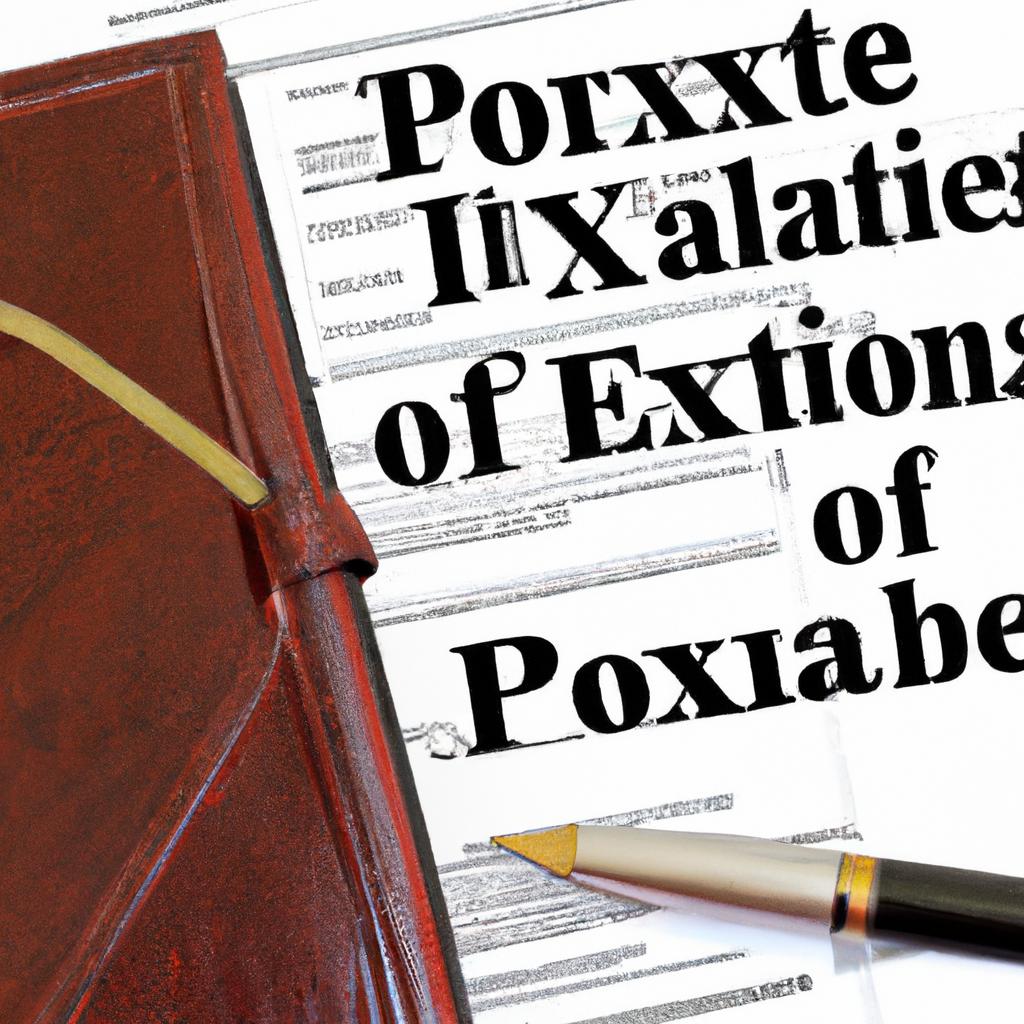Have you recently found yourself in the complex and often overwhelming process of probate administration? As an experienced probate attorney at Morgan Legal Group in New York City, we understand the importance of navigating the legal intricacies of probate with precision and expertise. One common question that frequently arises among our clients is whether probate attorney fees are tax deductible. In this article, we will dive into the nuances of this topic and provide clarity on the tax implications of probate attorney fees.
Understanding the Tax Implications of Probate Attorney Fees
When it comes to the tax implications of probate attorney fees, many individuals may wonder whether or not these fees are tax deductible. The answer to this question is not as straightforward as one might think. In general, probate attorney fees are considered a personal expense rather than a business expense, so they are not typically tax deductible. However, there are certain circumstances in which probate attorney fees may be tax deductible. It is important to understand the rules and regulations surrounding this issue in order to ensure compliance with tax laws.
One factor to consider when determining the tax deductibility of probate attorney fees is whether the fees are considered necessary for the administration of the estate. If the fees are deemed necessary and reasonable, they may be deductible as an estate administration expense. Additionally, if the estate is subject to estate tax, the probate attorney fees may be deducted from the gross estate before calculating the taxable amount. It is crucial to consult with a tax professional or estate planning attorney to determine the specific tax implications of probate attorney fees in your particular situation.

Navigating the IRS Guidelines on Deductibility of Probate Attorney Fees
When it comes to probate attorney fees, many individuals wonder if they are tax deductible according to the guidelines set forth by the IRS. Understanding the deductibility of these fees can save you money and alleviate some of the financial burden that comes with settling an estate. Here are some key points to consider when navigating the IRS guidelines:
Factors that may impact the deductibility of probate attorney fees:
- The nature of the legal services provided
- Whether the fees are directly related to the administration of the estate
- Any personal legal services included in the attorney’s fees
| Legal Services | Deductibility |
|---|---|
| Probate-related services | Generally deductible |
| Personal legal services | Not deductible |

Maximizing Potential Tax Savings through Proper Documentation
In the realm of estate planning and probate law, one common question that often arises is whether probate attorney fees are tax deductible. The answer to this question is not as simple as a straightforward “yes” or “no.” Proper documentation is key to maximizing potential tax savings when it comes to probate attorney fees. It is important to keep track of all legal fees paid, as these expenses may be eligible for tax deductions depending on the circumstances.
When it comes to deducting probate attorney fees on your taxes, it is essential to consult with a qualified tax professional or estate planning attorney to ensure compliance with current tax laws. Keep in mind that deductibility of legal fees can vary depending on the nature of the legal services provided and the specific circumstances of the case. By maintaining organized and detailed records, you can potentially maximize tax savings through proper documentation of probate attorney fees.

Consulting with a Tax Professional for Personalized Advice
When it comes to probate attorney fees, many clients wonder if they are tax deductible. The answer to this question is not as straightforward as one might think. In general, legal fees are not typically tax deductible. However, there are certain circumstances in which probate attorney fees may be deductible:
- If the estate is taxable and the legal fees are related to settling the estate, they may be deductible.
- If the legal fees are related to tax planning or advice, they may also be deductible.
It is important to consult with a tax professional to determine if probate attorney fees are tax deductible in your specific situation. They can provide personalized advice based on your individual circumstances and help you navigate the complex world of tax deductions.
Q&A
Q: Are probate attorney fees tax deductible?
A: Probate attorney fees may be tax deductible, but it depends on the circumstances.
Q: What factors determine if probate attorney fees are tax deductible?
A: The IRS considers probate attorney fees tax deductible if they are incurred in the process of administering an estate.
Q: Can I deduct any legal fees associated with personal matters?
A: Unfortunately, legal fees for personal matters such as divorce or property disputes are generally not tax deductible.
Q: Are there any limits to the deduction of probate attorney fees?
A: There may be limits to the deduction of probate attorney fees, so it is best to consult with a tax professional for specific guidance.
Q: How can I ensure that I can deduct probate attorney fees on my taxes?
A: Keeping detailed records of the attorney fees you pay during the probate process will help support your deduction claim in case of an IRS audit.
Q: Are there any other types of legal fees that may be tax deductible?
A: Yes, certain legal fees related to income-producing activities or investments may be tax deductible. It is always best to consult with a tax professional for personalized advice.
To Wrap It Up
In conclusion, the question of whether probate attorney fees are tax deductible can be a complex issue. While certain fees may be eligible for deduction under specific circumstances, it is always best to consult with a tax professional to ensure compliance with the latest tax laws and regulations. As probate proceedings can already be a stressful and time-consuming process, understanding any potential tax implications can provide some relief and peace of mind. Remember, when it comes to taxes and legal matters, it’s always better to be safe than sorry.

